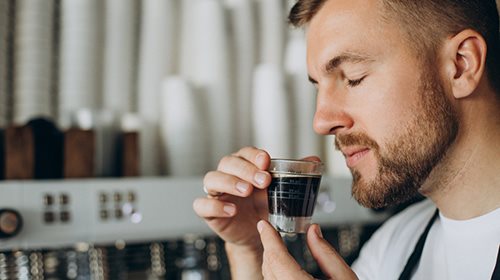-
- Some services are not accessible on a smartphone.
- Sign In
- My Account
- My Cart
- Customer Service
- Home
- >The importance of coffee and water filters - De Luca's Coffee
The importance of coffee and water filters.
Water makes up more than 85% of an espresso, and the type of water used to create it can have a significant impact on the flavour.

The quality of water varies greatly depending on where you live and the rest of the world since it is obtained from diverse sources and treated in different ways. It depends on the local geology; 60% of the land has "hard" water, which implies it has more mineral reserves than other areas.
These mineral buildups alter the flavour of the water we drink, which in turn affects how coffee tastes, as well as causing scale in pipes and machinery.One way to maintain consistent water quality and stop your coffee maker from scaling up is to filter your water before it enters the espresso maker.
This is essential to keeping your traditional coffee maker in good working order and can lessen the likelihood of your machine breaking down.
When should the filter be replaced?
Depending on the type of filter you're using, how much water is running through it, and how hard the water is where you live, water filters should be changed regularly.
It is advised to change your filters more frequently the more coffee you make per day.
A smart place to start is by replacing your water filters once a year, though it could be suggested to do so more frequently if you manage a busy site.
It is intended for calcium treatment units to be used with commercial coffee makers. They support keeping your coffee makers' circulation systems safe. If water is not cleaned or filtered before entering the system, everything from the boiler, steam wands, hot water tap, and internal plumbing might be covered with limescale.
By filtering your water, you can ensure that just the coffee's natural flavours are present in the beverage, preserving all of the flavour notes and maintaining the same delicious flavour that both you and your customers like.
